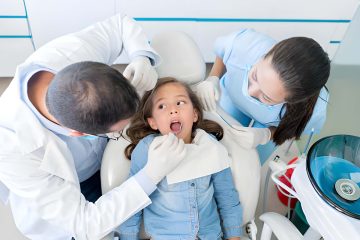Basics of Addiction Rehab Programs

Man, stress and office for employee burnout, tired finance consultant and computer mistake or fail. Male person, professional crisis and workplace fatigue at desk, mental health and trader depression
Definition and Purpose
Addiction rehab programs are structured interventions designed to help individuals break free from the grips of substance dependence. These programs aim to address not just the physical aspects of addiction but also the emotional, psychological, and social factors that contribute to it. The primary goal is to equip individuals with the tools they need for long-term recovery and a healthier lifestyle. By offering a supportive environment, rehab programs provide a safe space for individuals to begin their journey toward sobriety.
Types of Addictions Treated
Rehab programs cater to a wide range of addictions, including but not limited to drugs, alcohol, and even behavioral addictions like gambling. Each type of addiction requires a tailored approach, as the underlying causes and triggers can vary significantly. Facilities often specialize in different areas, providing targeted therapies and treatments that address the specific needs of their clients. This specialization ensures that individuals receive the most effective care possible.
Importance of Personalized Care
Personalized care is at the heart of effective addiction treatment. Recognizing that each person’s journey with addiction is unique, rehab programs are designed to cater to individual needs. This involves creating customized treatment plans that consider the person’s history, the severity of their addiction, and any co-occurring mental health issues. By focusing on personalized care, rehab programs can offer more precise interventions, increasing the likelihood of successful recovery. Additionally, specialized facilities can enhance the effectiveness of treatment by providing targeted support and resources.
The Admission Process in Rehab Programs
Initial Assessment and Evaluation
When someone decides to enter a rehab program, the first step is usually an initial assessment and evaluation. This process is critical as it helps to create a tailored treatment plan that meets the unique needs of the individual. During this stage, professionals assess the severity of the addiction, any co-occurring mental health issues, and the person’s medical history. The evaluation often involves a series of interviews and questionnaires. This comprehensive assessment helps in understanding the individual’s background and the extent of their addiction, ensuring that the treatment plan is as effective as possible.
Insurance and Financial Considerations
Another vital aspect of the admission process is dealing with insurance and financial considerations. Rehab programs can be expensive, and understanding the financial obligations is crucial for those seeking treatment. Many facilities offer financial consultations to help individuals navigate their insurance benefits and explore payment options. It’s important to clarify what costs are covered by insurance and what expenses might need to be paid out-of-pocket. This step can often be a hurdle for many, but it’s essential to address it early on to avoid any financial surprises later.
Preparing for Admission
Once the assessment and financial arrangements are in place, the next step is preparing for admission. This involves both logistical and emotional preparations. Logistically, individuals might need to arrange for time off work or find someone to take care of responsibilities at home. Emotionally, preparing for rehab can be daunting, as it involves a significant life change. It’s recommended to talk to family and friends about the decision, as having a support network can make the transition smoother. Additionally, some facilities provide pre-admission counseling sessions to help individuals mentally prepare for the journey ahead. This preparation phase is crucial as it sets the tone for the individual’s commitment to the treatment process.
Types of Treatment Settings in Rehab Programs
Inpatient Treatment Facilities
Inpatient treatment facilities, like Serenity at Summit, offer a structured environment where individuals can focus entirely on their recovery. These facilities provide 24-hour care and support, making them ideal for those with severe addictions or dual diagnoses. Patients reside at the center for the duration of their treatment, which allows them to be immersed in a community of support. This setting ensures that patients are removed from the triggers and stresses of daily life, allowing them to focus solely on healing. However, the commitment to stay at the facility means patients may need to take time off work or arrange for childcare, which can be a challenge for some.
Outpatient Treatment Options
Outpatient treatment offers a more flexible approach, allowing individuals to live at home while attending therapy sessions at a facility like Serenity at Summit. This option is suitable for those with milder addictions or those who have already completed an inpatient program and are transitioning back to everyday life. The flexibility of outpatient care means patients can maintain their work and family responsibilities, but it also requires a strong personal commitment to avoid relapse, as they remain in their usual environment.
Choosing the Right Setting
Choosing between inpatient and outpatient settings depends on various factors, including the severity of the addiction, personal responsibilities, and financial considerations. For some, a combination of both settings might be the best approach, starting with inpatient care to stabilize and then transitioning to outpatient treatment for continued support. It’s crucial for individuals to consult with healthcare professionals to determine the most suitable setting for their unique situation, ensuring they receive the most effective care possible.
Core Components of Addiction Rehab Programs
Individual Counseling Sessions
In the journey of recovery, individual counseling sessions are like the compass guiding a person through the stormy seas of addiction. These sessions provide a safe space where individuals can explore their thoughts and feelings, unpacking the layers of their addiction. A therapist works one-on-one with the patient, helping them to understand the roots of their addiction and to develop healthier coping mechanisms. This personalized approach is crucial as it allows for tailored strategies that address the unique challenges faced by each individual. It’s not just about talking; it’s about understanding and reshaping one’s life.
Group Therapy Dynamics
Group therapy is another cornerstone of addiction rehab, offering a different kind of support. Picture a room where people share their stories, each voice adding to a collective understanding of addiction. This setting fosters a sense of community and belonging, essential for recovery. Participants learn from each other, gaining insights and finding solace in shared experiences. Group therapy sessions help break down the isolation often felt in addiction, showing individuals they are not alone in their struggle.
Family Involvement and Support
Family involvement in rehab is like bringing in reinforcements in a battle. Families play a critical role in the recovery process, providing emotional support and understanding. Rehab programs often include family therapy to address any underlying issues and improve communication within the family unit. This therapy helps families understand addiction as a disease and learn how to support their loved ones effectively. By rebuilding these relationships, individuals in recovery can lean on their families for support, creating a stronger foundation for long-term sobriety.
Specialized Therapies and Approaches
Rehabilitation programs often employ a variety of specialized therapies to aid recovery, each catering to different aspects of addiction and personal healing. Cognitive-Behavioral Therapy (CBT) stands out as a cornerstone in many rehab settings. It helps individuals identify and change negative thought patterns that contribute to their addiction. By understanding the connection between thoughts, feelings, and behaviors, participants can develop healthier coping mechanisms.
Alongside CBT, holistic and alternative therapies have gained popularity. These include practices like meditation, yoga, and acupuncture, which aim to heal the mind, body, and spirit. Such therapies often complement traditional methods, providing a well-rounded approach to treatment. They cater to those who seek a more natural path to recovery, focusing on overall well-being rather than just the addiction itself.
Art and music therapy are also integral parts of many rehab programs, including those offered by The Addiction Rehab Group. These therapies provide creative outlets for expression, helping individuals process emotions and experiences that might be difficult to articulate verbally. Engaging in these activities can be therapeutic, offering a sense of accomplishment and self-discovery. The Addiction Rehab Group incorporates these specialized therapies to enhance the recovery journey, recognizing that every individual’s path to healing is unique and multifaceted.
The Role of Medical Detoxification
Understanding Detoxification
Medical detoxification is a critical first step in the addiction recovery process. It involves the careful removal of harmful substances from the body under medical supervision. This process is vital because it helps to stabilize the individual physically, making them ready for the subsequent stages of treatment. The detox phase is tailored to the type of substance used and the individual’s specific needs, ensuring a safe and effective withdrawal. While detoxification may seem daunting, it is essential for breaking the physical dependency on substances and paving the way for a clearer, healthier recovery journey.
Medical Supervision and Safety
Detoxification is not something to be taken lightly. Having medical professionals oversee this process is crucial for ensuring safety and comfort. Withdrawal symptoms can be severe and unpredictable, depending on the substance and the individual’s health. Medical supervision provides the necessary support to manage these symptoms, reducing the risk of complications. Medications may be used to ease withdrawal symptoms and help the individual transition smoothly into the next phase of treatment. The goal is to make the detox process as comfortable as possible while maintaining the highest safety standards.
Post-Detox Transition
Once detoxification is complete, the journey to recovery is far from over. The post-detox phase involves transitioning into more intensive therapeutic interventions. This stage is where individuals begin to address the root causes of their addiction and develop coping strategies for long-term recovery. It’s essential to have a structured plan in place to support this transition, ensuring that the individual receives the necessary care and guidance. Medical detox sets the foundation for these subsequent treatments, making it a pivotal component of the overall recovery process. Through continued support and therapy, individuals can build a strong foundation for a substance-free life.
Support Services Beyond Core Treatment
In addiction recovery, the journey doesn’t end once core treatment is completed. It’s a continuous process that requires additional support services to ensure long-term success. Blackbear Rehab understands that individuals recovering from addiction need more than just medical treatment. They require a supportive environment that addresses their broader needs, such as housing, employment, and legal assistance. These services play a crucial role in helping individuals reintegrate into society and maintain sobriety.
Housing and Employment Assistance
Securing stable housing and employment are critical steps in the recovery process. Without a safe place to live and a steady job, individuals are at a higher risk of relapse. Blackbear Rehab offers resources and guidance to help individuals find suitable housing and employment opportunities. This support not only provides financial stability but also instills a sense of purpose and self-worth.
Legal and Medical Support
Navigating legal and medical challenges can be daunting for someone in recovery. Blackbear Rehab provides access to legal assistance and medical support, ensuring that individuals have the resources they need to address any legal issues or ongoing medical conditions. This comprehensive approach helps alleviate stress and allows individuals to focus on their recovery.
Aftercare and Continuing Care
The transition from rehab to everyday life can be challenging, which is why aftercare and continuing care are vital components of a successful recovery plan. Blackbear Rehab offers ongoing support through outpatient services and support groups. These programs provide a network of peers and professionals who understand the challenges of recovery and offer encouragement and accountability. By participating in aftercare, individuals can build a strong foundation for a sober lifestyle and reduce the risk of relapse.
Measuring the Effectiveness of Rehab Programs
Success Rates and Statistics
Evaluating the success of addiction rehab programs extends beyond merely counting how many people remain sober after treatment. It’s about looking at the broader picture, including improvements in mental and physical health, better family relationships, and progress in education or employment. Statistics often show that a significant number of individuals experience a marked improvement in their quality of life after completing a rehab program. For instance, Evoke Wellness, a well-regarded treatment center, emphasizes that success isn’t just about abstaining from substances but also about achieving overall life satisfaction.
Quality Indicators of Treatment
High-quality rehab programs are distinguished by their use of evidence-based treatments and personalized care plans. These programs frequently assess the progress of their patients through various metrics, akin to checking vital signs in a medical setting. By regularly monitoring these “addiction and mental health vital signs,” facilities like Evoke Wellness can adjust treatment plans as needed, ensuring that the care provided is effective and tailored to each individual’s needs.
Feedback and Continuous Improvement
Feedback from patients is a cornerstone for continuous improvement in rehab programs. Facilities that actively seek and incorporate feedback are often more successful in adapting their methods to better serve their patients. At Evoke Wellness, patient feedback is taken seriously, and adjustments are made to enhance the treatment experience. This ongoing process of refinement helps maintain high standards and improves the chances of long-term recovery for those in their care.
Challenges and Barriers in Rehab Programs
Stigma and Social Perceptions
One of the most significant hurdles in addiction recovery is the stigma attached to seeking help. Many individuals fear judgment from society, which can deter them from entering a rehab program. This stigma is often fueled by misconceptions about addiction being a moral failing rather than a medical condition. Addiction Centers play a crucial role in educating the public and reshaping these perceptions, emphasizing that addiction is a complex disease that requires professional treatment.
Financial and Accessibility Issues
Financial constraints are a major barrier for many seeking treatment. The cost of rehab programs can be prohibitive, and insurance coverage may not always be comprehensive. Additionally, some individuals may not have access to nearby treatment facilities, especially in rural areas. This lack of accessibility can prevent people from receiving the help they need. Efforts to expand insurance coverage and increase the number of local Addiction Centers are essential to overcoming these barriers.
Relapse Prevention Strategies
Preventing relapse is a continuous challenge in the recovery journey. Despite completing a rehab program, individuals are often at risk of returning to substance use due to triggers in their environment or underlying psychological issues. Effective relapse prevention strategies involve ongoing support and counseling, which are integral parts of the treatment plan at many Addiction Centers. These strategies are tailored to address the unique needs of each individual, helping them maintain sobriety in the long term.
The Importance of Aftercare in Long-Term Recovery
Outpatient Services and Support Groups
Aftercare plays a vital role in the recovery journey, acting as a safety net that supports individuals as they transition from structured rehab environments back into daily life. The risk of relapse is highest immediately after leaving a rehab facility, making a robust aftercare plan essential. Through outpatient services, individuals continue to receive necessary support while gradually reintegrating into their communities. Support groups, such as 12-step meetings, provide a platform for sharing experiences and gaining encouragement from peers, which can be incredibly grounding during this vulnerable period.
Medication Management
For many, medication management becomes an integral part of aftercare, especially for those who have been prescribed medications to aid in their recovery from substance use disorders. These medications can help manage withdrawal symptoms and reduce cravings, making it easier for individuals to maintain their sobriety. Regular consultations with healthcare providers ensure that medication regimes are effective and adjusted as needed, providing a structured approach to managing recovery.
Building a Sober Lifestyle
Establishing a sober lifestyle is about more than just abstaining from substances; it involves creating a new way of living that supports long-term recovery. This process often includes finding new hobbies, building healthy relationships, and setting personal goals. Aftercare programs frequently offer resources and guidance to help individuals navigate these changes. By fostering a supportive environment, aftercare helps individuals build a life that not only avoids substance use but also promotes overall well-being.** This ongoing support is crucial for sustaining recovery and achieving lasting change.**
Family and Community Involvement in Recovery
Family Therapy and Education
Family therapy plays a key role in addiction recovery, offering a space for families to mend and strengthen their bonds. In rehab settings, family therapy isn’t just about the individual battling addiction; it’s about the entire family unit. Sessions focus on improving communication, understanding family dynamics, and rebuilding trust. Educating family members about addiction helps them understand what their loved one is going through and how they can support their recovery journey. This therapy often involves various approaches, tailored to each family’s unique dynamics and needs.
Community Support Networks
Community support networks are vital in the recovery process, providing a broader support system beyond the family. These networks often include support groups, recovery communities, and other resources that individuals can tap into for encouragement and guidance. Being part of a community that understands the challenges of addiction can significantly boost a person’s confidence and motivation to stay sober. Harmony Ridge and other treatment centers emphasize connecting individuals with these networks to ensure they have ongoing support.
Role of Peer Support
Peer support is another crucial element in recovery, offering individuals the chance to connect with others who have faced similar struggles with addiction. These peer relationships can provide encouragement, accountability, and a sense of belonging, which are all important for maintaining sobriety. Programs often incorporate peer support groups as a core component of the recovery process, recognizing that shared experiences can foster a deeper understanding and commitment to staying clean. Harmony Ridge, among others, integrates peer support to enhance the recovery journey, underscoring its importance in long-term sobriety.
Future Trends in Addiction Rehab Programs
Technological Innovations in Treatment
In the realm of addiction rehab, technology is playing a transformative role. From virtual reality (VR) therapies to mobile health applications, these tools are enhancing the way treatment is delivered. Imagine a world where patients can access therapy sessions through their smartphones or engage in immersive VR experiences that help them confront and manage their triggers. This is not science fiction; it’s the emerging reality in addiction treatment. Sandstone Addiction Care is at the forefront of integrating these technologies, offering patients innovative ways to engage with their recovery process.
Personalized Medicine Approaches
Personalized medicine in addiction treatment is gaining momentum. This approach involves tailoring medical treatment to the individual characteristics of each patient, considering their genetic makeup, lifestyle, and specific addiction challenges. By understanding the unique biological and psychological factors at play, treatment can be more effective. Sandstone Addiction Care is pioneering these methods, ensuring that each patient receives a treatment plan that is as unique as their journey to recovery.
Global Perspectives on Addiction Treatment
Addiction knows no borders, and neither does the quest for effective treatment. Around the world, different cultures are contributing to a global understanding of addiction and recovery. Practices like mindfulness and meditation from Eastern traditions are being integrated into Western rehab programs. Sandstone Addiction Care is exploring these global perspectives, incorporating diverse methodologies to enrich their treatment options. This not only broadens the scope of available therapies but also respects and acknowledges the varied pathways to recovery.














